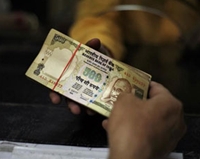Panel moots Rs3-lakh IT exemption
03 Mar 2012
Ahead of the budget, the parliamentary standing committee on finance has finalised its report on the direct taxes code, which recommends an increase in the basic tax exemption limit to Rs3 lakh, with another Rs3.20 lakh worth of rebate for eligible investments and spending.
 If the proposals are accepted, an income of up to Rs6.2 lakh would escape the tax net if properly deployed in various instruments, including housing loans.
If the proposals are accepted, an income of up to Rs6.2 lakh would escape the tax net if properly deployed in various instruments, including housing loans.
At present, no tax is levied on annual income up to Rs1.80 lakh for a male below the age of 60 years and Rs1.90 lakh per annum for women under 60. Senior citizens enjoy a higher exemption limit. The panel has now recommended doing away with the gender-based difference.
The panel, headed by former finance minister Yashwant Sinha of the Bharatiya Janata Party, has suggested no relief for corporate taxpayers, and has recommended retaining the corporate tax rate at 30 per cent as against 25 per cent proposed by the government.
In an important recommendation, the committee has reversed the onus of proving tax evasion from the assessee, who currently has to prove innocence, to the tax officials, who would have to prove guilt.
The committee has seen merit in the criticism that the general anti-avoidance rules (GAAR) have been framed in a manner that gives tax authorities sweeping powers to intervene on suspicion that a transaction is being made to save or avoid taxation.
The committee felt provisions of DTC were skewed in favour of authorities while the assessee was disadvantaged as he was "guilty unless proven innocent". The panel has suggested that officials must prove that there is a case of avoidance and the assessee be allowed opportunities to argue his case.
An independent body with one judicial and two technical members could hear arguments put forward by an assesee who has to be heard by the dealing officer as well. If his arguments are rejected and a notice is served for tax avoidance, the assessee will be free to approach a regular court.
The draft report is also likely to suggest that the government fix a threshold to take up a tax avoidance case and also introduce strong checks to ensure that frivolous cases are not filed to harass assesses.
The panel has suggested retaining the three-slab structure of 10 per cent, 20 per cent and 30 per cent for personal income tax.
The report is likely to be presented to Parliament within a week.
The DTC Bill, introduced in Parliament in August 2010, seeks to replace the over 50-year-old Income Tax Act, 1961. Though the bill is not likely to be passed by Parliament in the budget session, the government could introduce some of its measures in the budget due to be presented on 16 March.


















